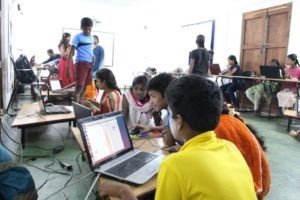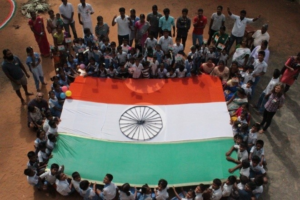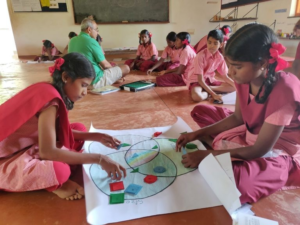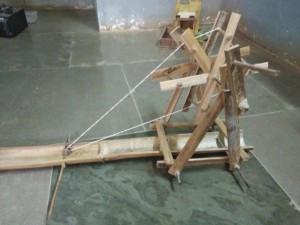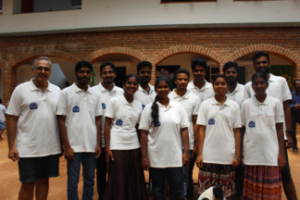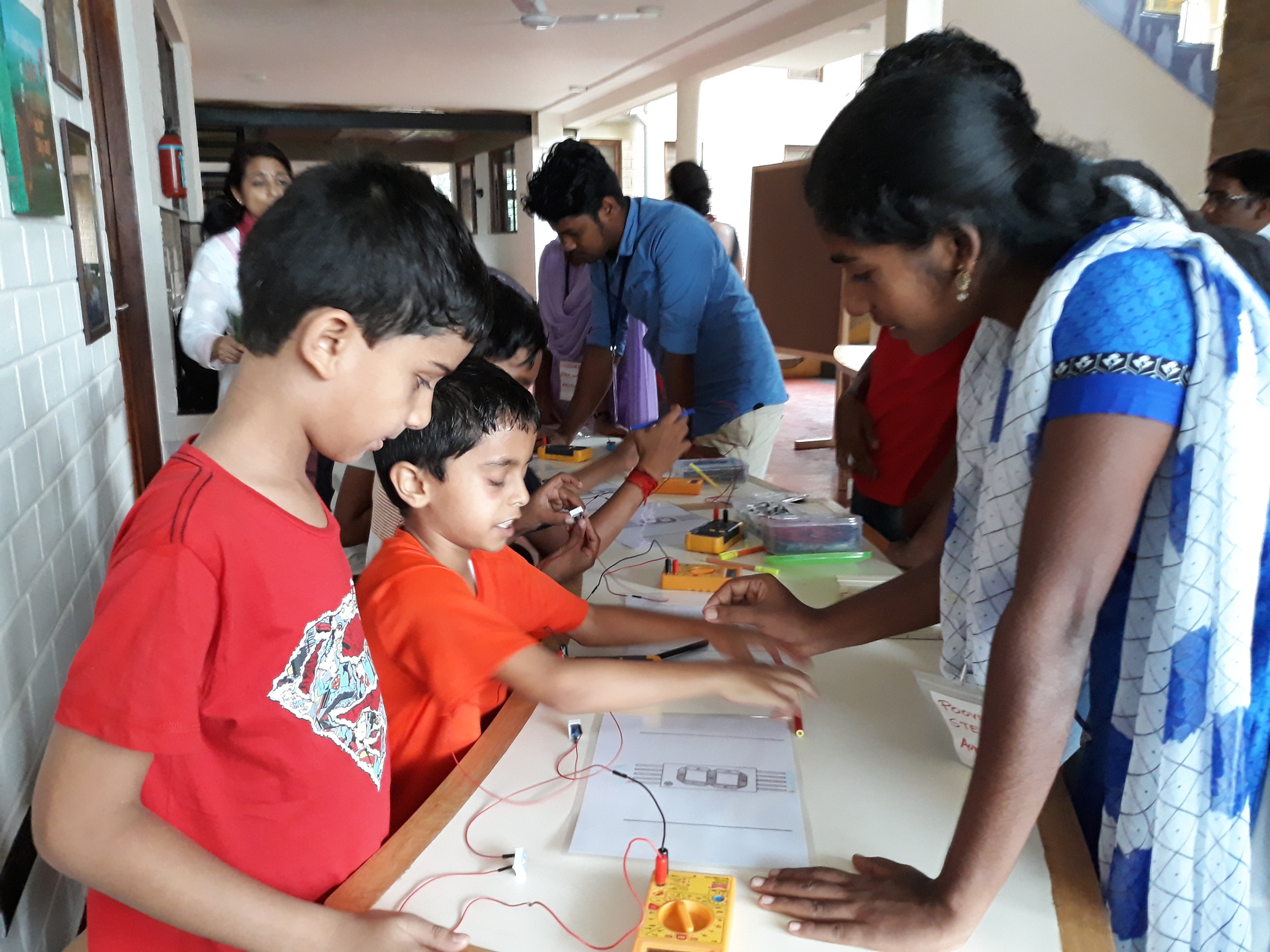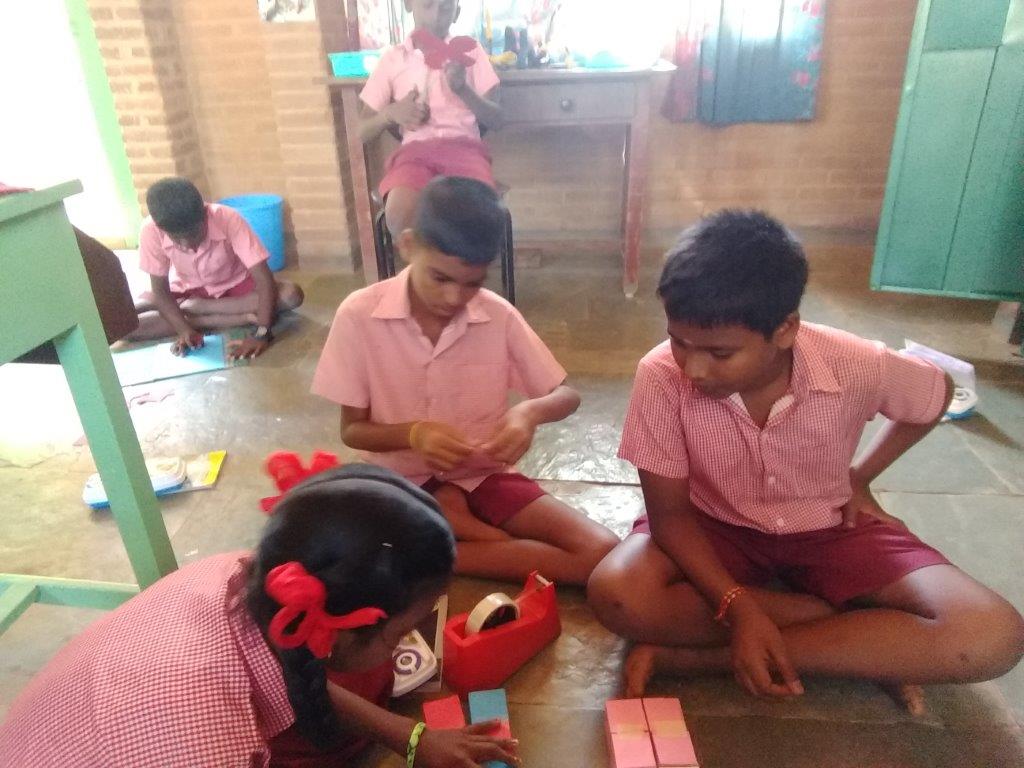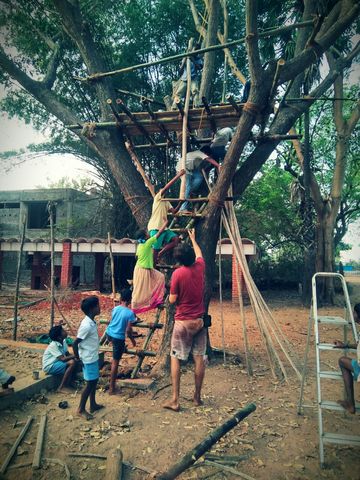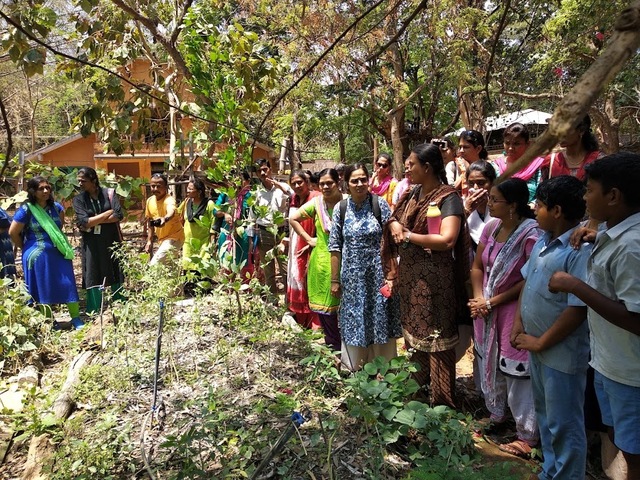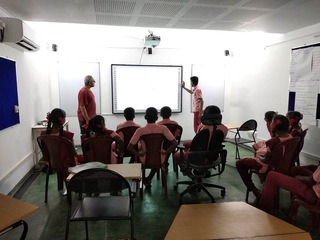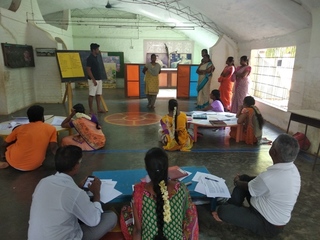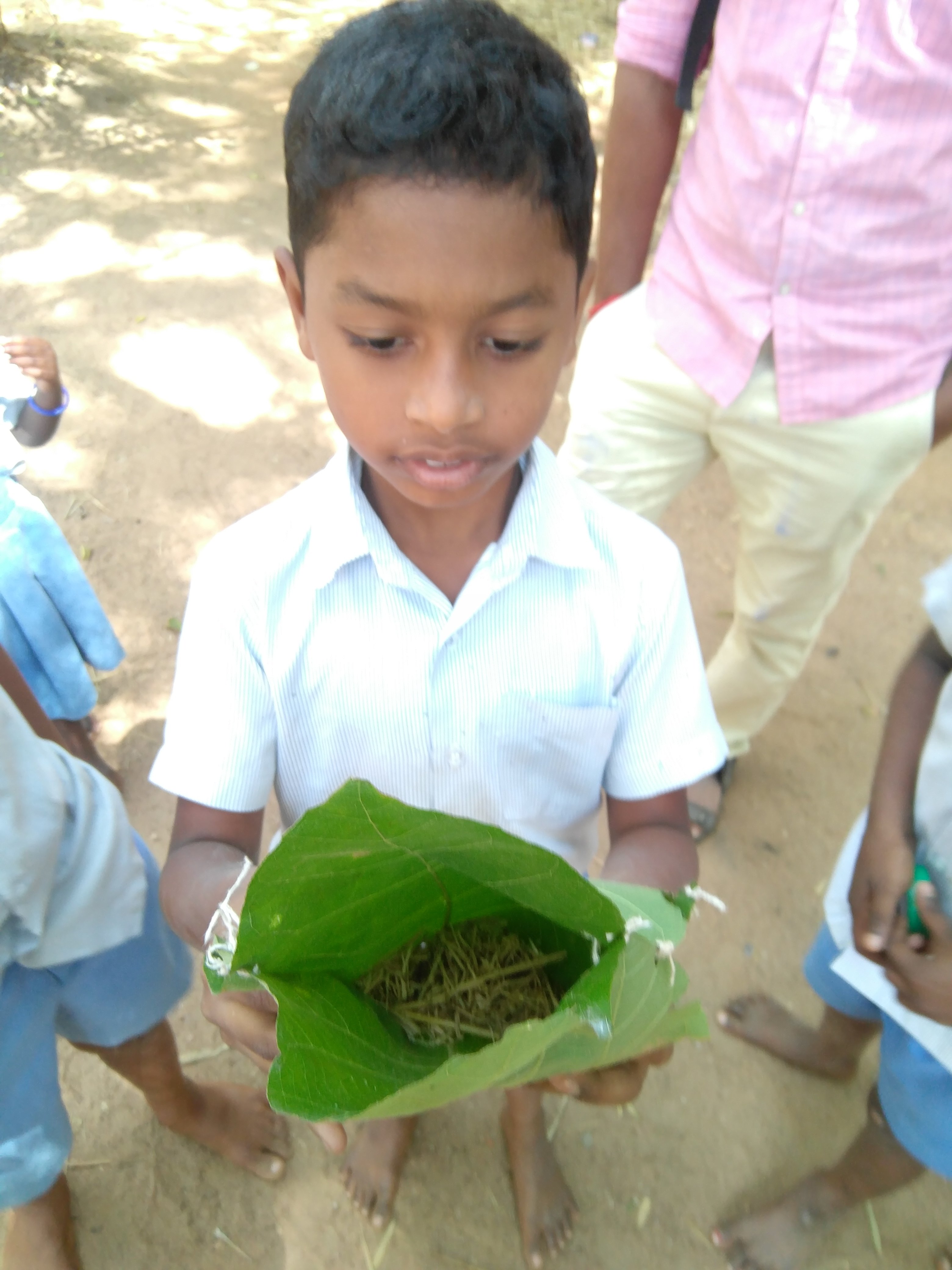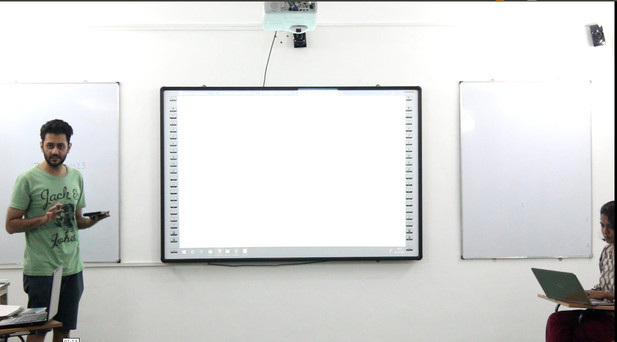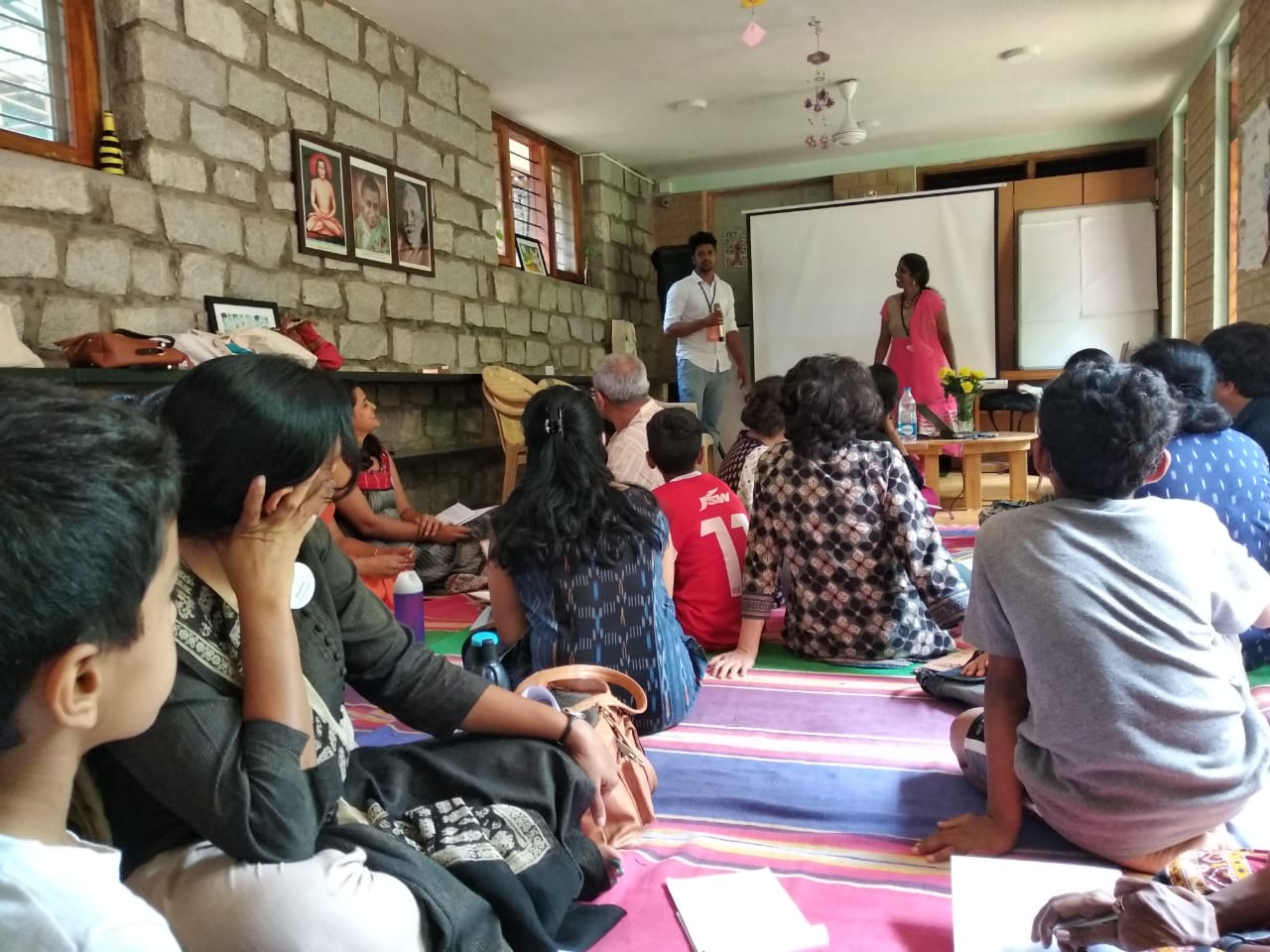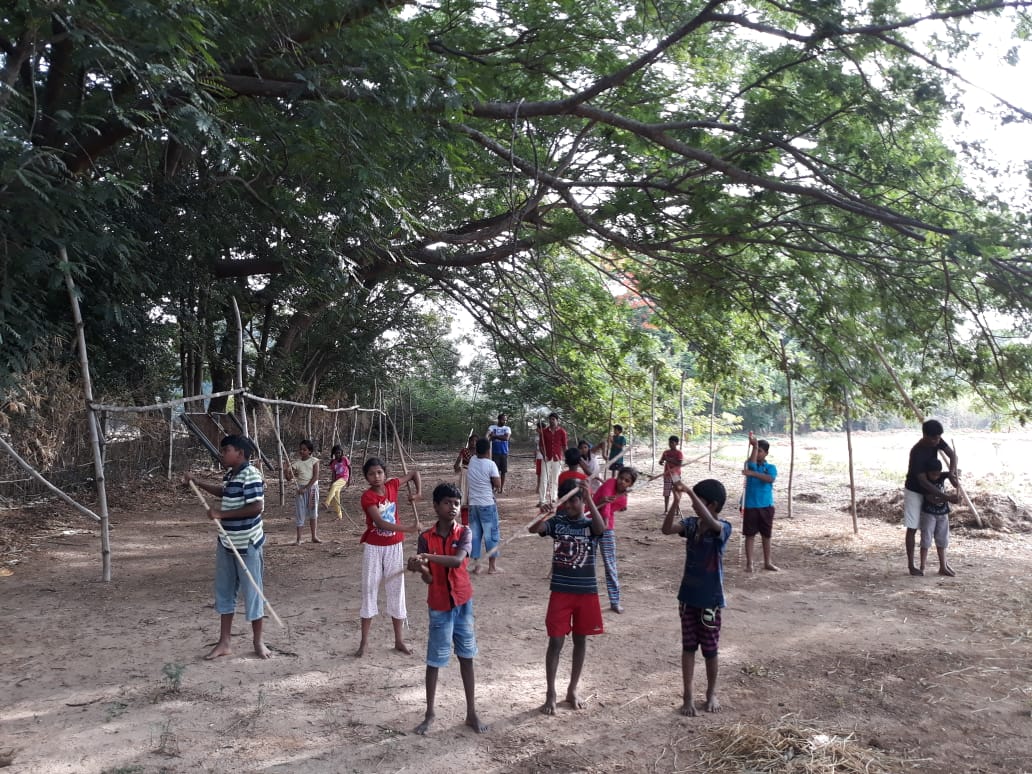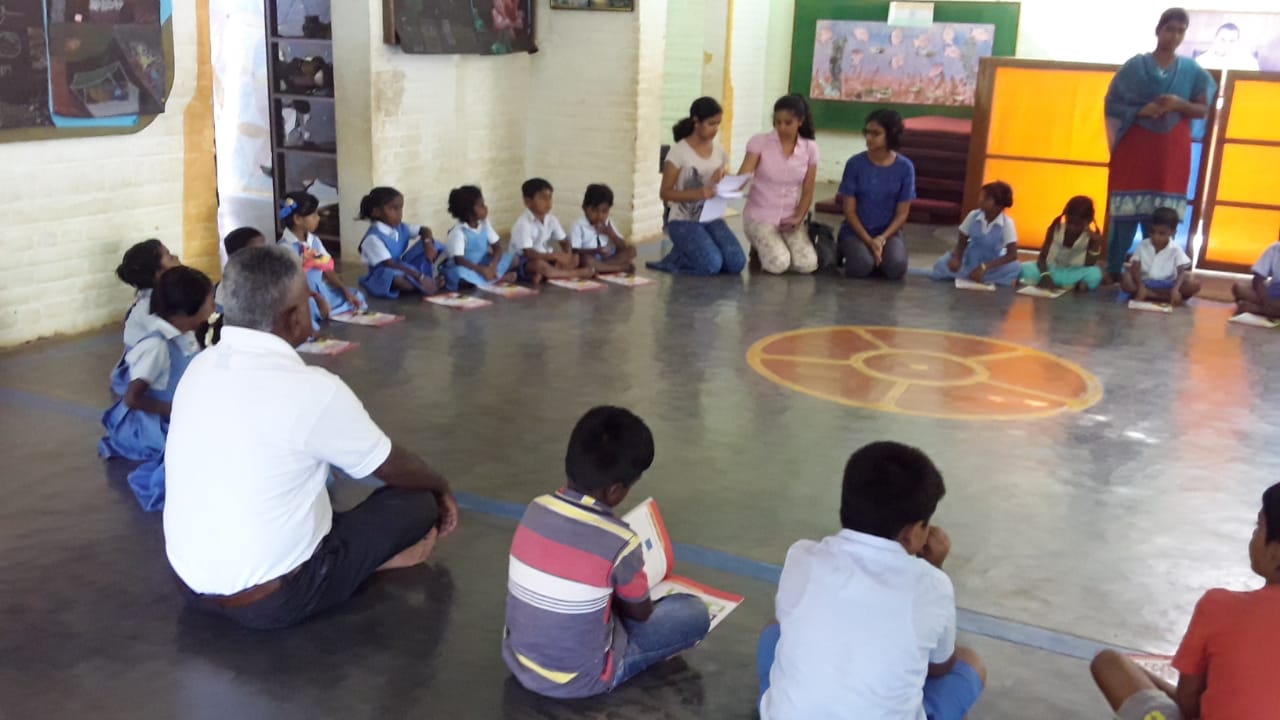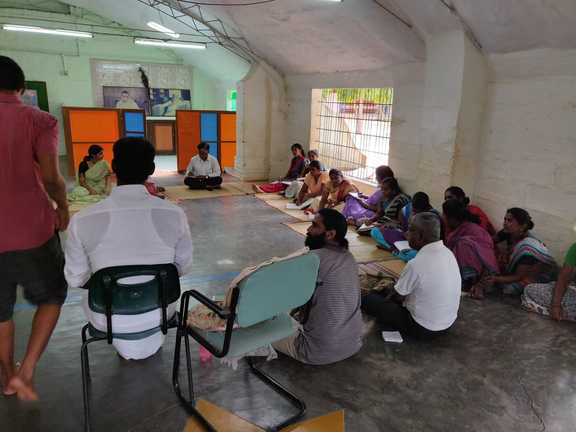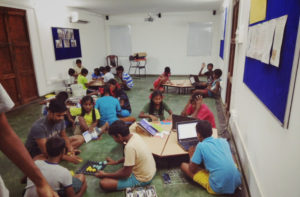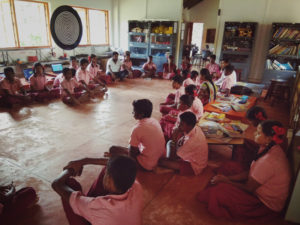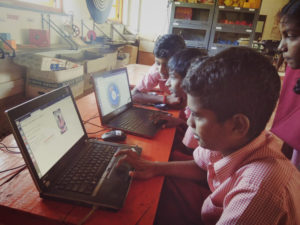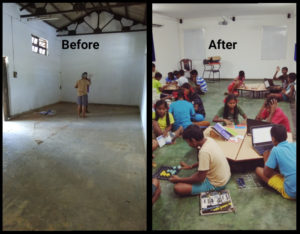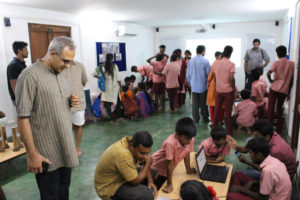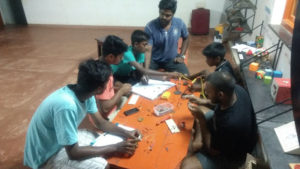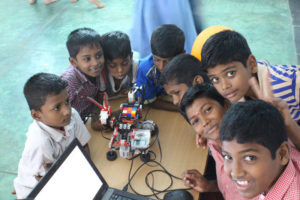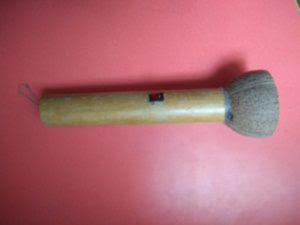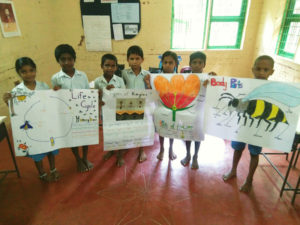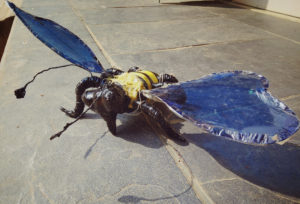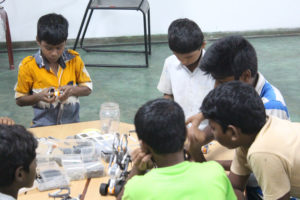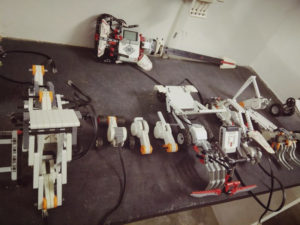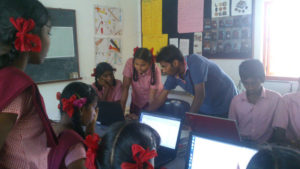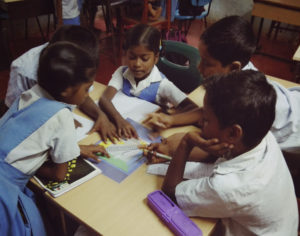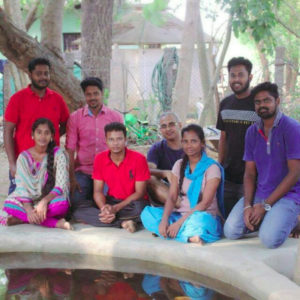| About STEM (Science Technology Engineering Mathematics) land
STEM land resource centres are located in Udavi School and Isai Ambalam School, two outreach schools of Auroville. Children come to STEM Land for Math, EVS and science classes.They learn Mathematics, Electronics, 3D Printing, Programming, Mindstorms (Robotics) and play strategic games that enhance logical thinking. The elder children take responsibility for their learning and plan their goals. They only ask for support when needed. This self-directed learning is based on Sri Aurobindo’s first principle of education, “Nothing can be taught”. With younger children we work on real life projects that impact their surroundings. We believe a nurturing environment can support a child’s learning and taking responsibility of his or her learning.

epiSTEME-7 conference
We went to Mumbai from Jan 5th-8th and presented a poster at epiSTEME7 conference in HBCSE (Homi Bhabha Centre for Science Education). Many educators and academics from different countries had come and presented their research and review papers at the conference.

The conference was about research on Science, Technology and Mathematics Education. We wrote a paper on “Fostering Responsibility in Learning in Rural Schools”. We were told that we were the busiest booth throughout the 2 hour poster session. Five of us from STEM land – Aura Auro Design attended the conference. While in Mumbai we also presented this work at IIT Mumbai and TISS.
Skype call with children in Italy
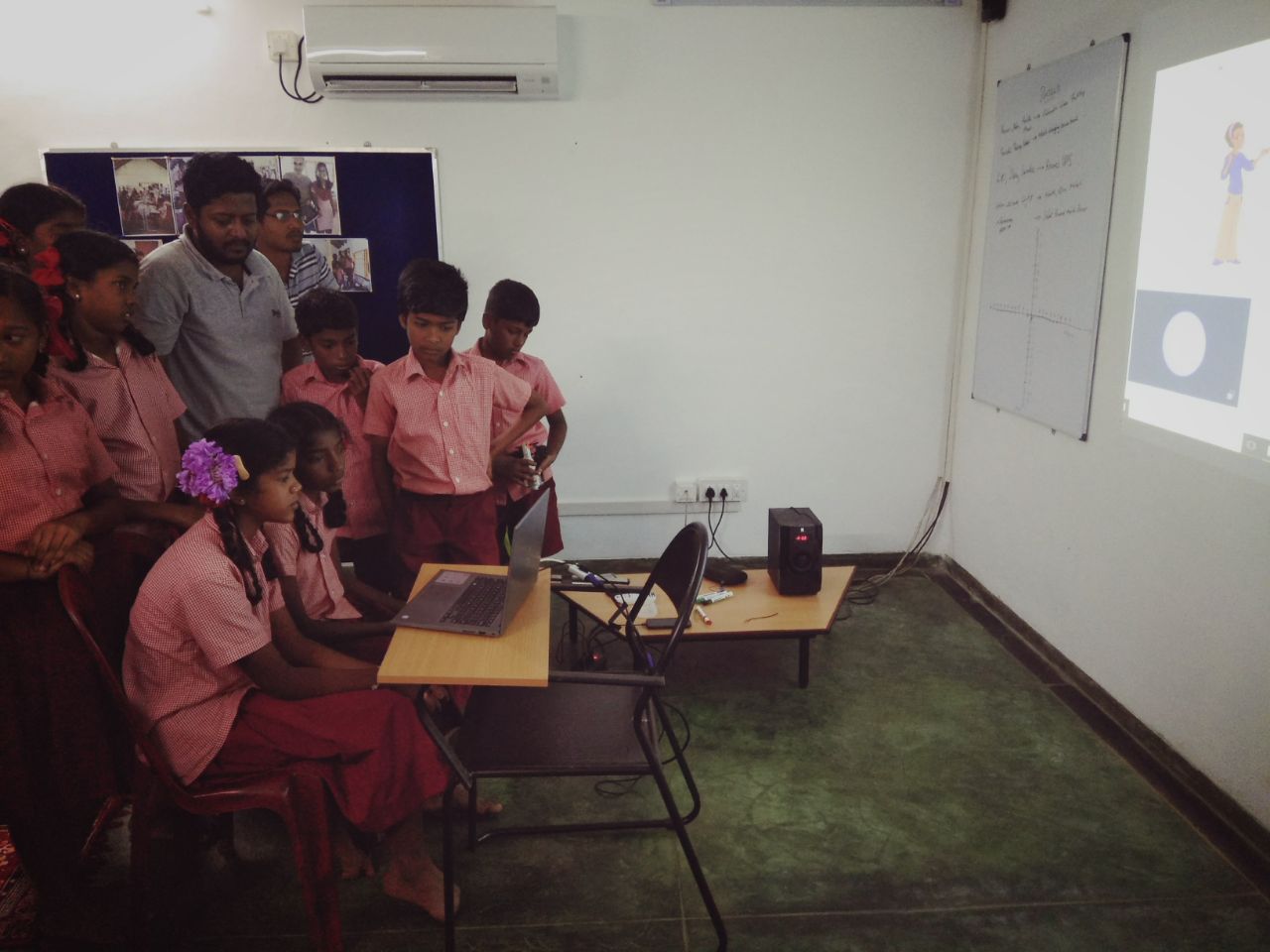
Children from Bianco-Pascoli of Fasano in Italy had a special day for the use of digital at their school. 7th and 8th grade children from Udavi school had a skype conference with them. Children shared their projects on scratch, Geogebra, the models they printed from the 3D printer, an inverter, Vaughn cube and Mindstorm robots. Children from Italy enjoyed watching the projects and were excited when they saw the Mindstorm robots. Children from Udavi also enjoyed sharing their work to the other school children.
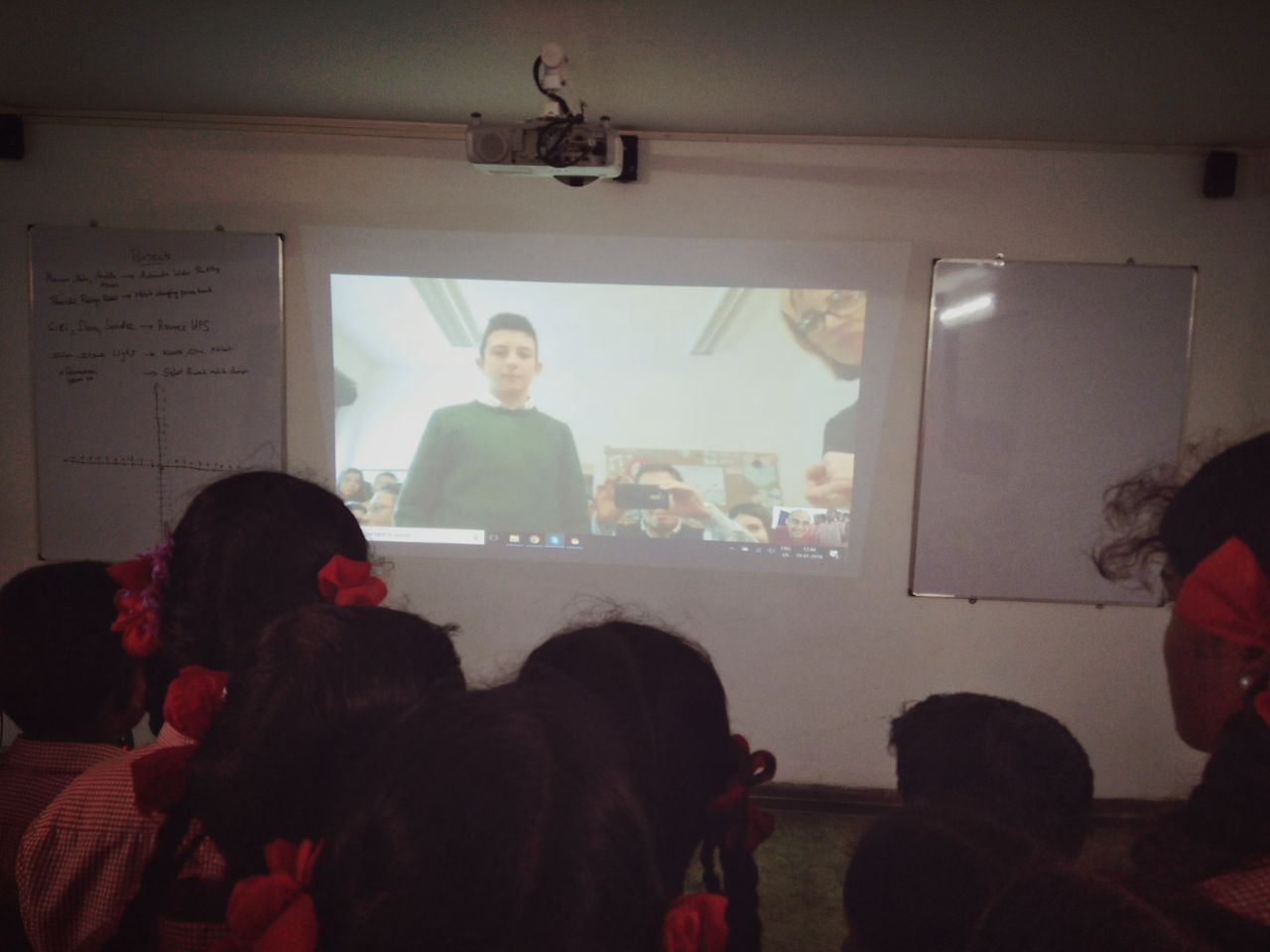
Learning Festival
Learning Festival was a large event organized by Azim Premji Foundation for over 6000 government school children with many facilitating groups at Indira nagar Higher Secondary School , Pondicherry. It was a four-day workshop and we hosted workshops on two days. We had 45 minutes with around 30 children each on basic electronics. We asked children to write their names using seven-segment displays. Two children from Isai Ambalam school supported us and handled a couple of session along with us. We had three sessions on the first day and six on the second.

We showed them an example circuit that showed a name. We then introduced them to a multimeter and using it asked them to decode which pin lights up which of the segments of the display. Once they figured out the pin connection we introduced the bread board to them and asked them to connect the seven segment displays on the bread board and light up the initial of the names of all the team members or their name.
A student named John who came for the first session couldn’t complete his name and got special permission and came the next day. He was able to light up his name and started to support other children. The teachers who came along with the children also sat with them and learnt to display the letters using the seven segment displays. In the evening the chief education officer came to meet us and saw John’s work. It was an inspiring moment.
Stewardship workshop for 7th and 8th grade children in Udavi
We conducted Stewardship for new emergence workshop with 7th and 8th grade children in Udavi School. Children were able to find what they stand for and learnt to work from possibilities rather than fear.
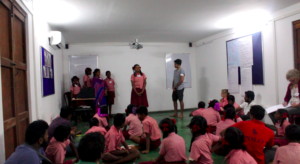 They went through the tools including stand, fear, four profiles, Deep listening and background conversations, system thinking, creativity. Every week we conduct triads with children which provides them an opportunity to reflect on where they have used these tools in their daily life. They went through the tools including stand, fear, four profiles, Deep listening and background conversations, system thinking, creativity. Every week we conduct triads with children which provides them an opportunity to reflect on where they have used these tools in their daily life.
10 principals
About 22 principals of various schools from Mind Mingle had come to visit schools in and around Auroville. They were split into groups and one of the groups with 10 principals came to STEM land.

We gave a broader picture of what we do and how children learn in STEM land. Then they went around STEM land and interacted with children. They saw the weekly puzzle, weekly plan. Children showed them how they fill their plan using the software, Hariharan solved Rubiks cube, on the other side Viknesh and Kabilan were demonstrating their Makey Makey project in which they made a mouse using a rubber chappal. They looked at the Montessori materials.

In the next room children were printing a fidget spinner in 3D printer, some of them were working on Alice and Scratch.The principals were happy to see children printing 3D models and sat along with the children to learn how it works. Children showed their projects and gave them some cast puzzles to solve. Some of them played games along with the children. It was interesting to see children sharing their learningwith the principals from various states without any hierarchies. Each principal said they learnt something from the children and said STEM land is a nice learning environment with freedom. One of the principals said that she was touched with what we do and wanted to implement it at her school.
Courses conducted
We conducted a basic VLSI course. Around 16 participants in and around Auroville came to learn.
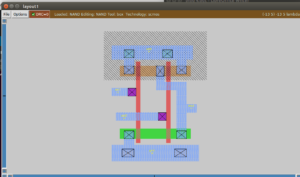
We focused on Digital layout. We did an inverter and simulated it using LT spice. Built the logic gates using DM74S00N and bread board and tested whether the logics were appropriate. We layed out an inverter using Magic and layed out XOR gate using NAND gates. The next course will be on Analog layout.
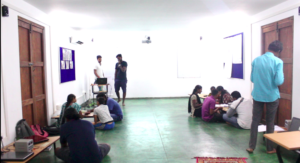
Sinthanai Sangamam
Sinthanai Sangamam is an annual symposium on education that happened on 21/02/2018 in Puducherry. Around 600 teachers from different places have participated. We presented our paper about STEM land in Isai Ambalam School and the EBDs we do with children. People shared their experience of interacting with the children, the methods they follow in their school, projects their students have done and how we can connect to science and maths in our real life.

Visitors
This quarter, we had around 82 visitors and 34 children to STEM land.
Government school teachers visit
Around 37 government school teachers and people from Azim Premji Unversity came for training at STEM land. Some of the teachers had heard our presentation at
Sinthanai Sangamam symposium on “STEM land in Isai Ambalam School”. Some of them were inspired from our talk and they came to visit STEM land. People saw what the children had created at Isai Ambalam school and interacted with the children working on their EBDs.

After that they visited STEM land in Udavi school. Children showed them few projects. The teachers also tried to solve cast iron puzzles. We also conducted a Stewardship session for them following lunch.
Project work
Children did projects on math concepts like Pythagoras theorem, finding squares, Probability, Geometrical concepts and theorems in Scratch, Geogebra and Go animate. They also did projects related to science. Even on a Pongal holiday children wanted to come and do something in electronics. They split into teams and built a microscope by hacking a web cam and the other team made an inverter using Arduino.

Children from both the schools from 5thto 9th grade participated in the Raman Young Science Innovator Award and created science projects. They chose their topics which were given under different grades and innovated their projects on it. Children were active and enthusiastic to complete their projects and submit them. The whole atmosphere for that one week was energetic and busy.
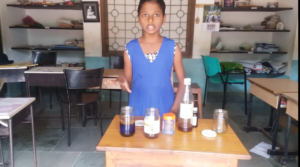
Swati in STEM land
Swati Sircar is a teacher trainer at the Azim Premji University in Bangalore and visited STEM land for a couple of days. She had completed MS in Math, M.Stat., B.Stat. (Hons.), and works with many NGOs and government school teachers. She is keen on hands on activities, explorations, open-ended questions as well as computer aided learning. She is also an origami enthusiast and uses her Montessori exposure in her current work. She came to STEM land and took sessions for the teachers and children on mathematics and showed us to use montessori materials like Ganit mala, Pythagoras theorem, place values and counters for addition and subtraction

|
Workshop on energy with Transition children

3rd grade children in Transition school are studying about energy and its types. About 19 children came to STEM land to learnt about energy. They learnt about converting electrical energy to light energy. We asked children to light up LEDs and measure how bright they can light up using resistors and batteries. They learnt about +ve and -ve charges and to connect an electrical circuit. Children also enjoyed working with multimeter, 9V battery, resistors and LEDs.
EBD (Education by Design)
EBD(Education by design) is a process in which a real life challenge is given to the children. Once the challenge is given children learn through designing and researching solutions for the challenge. At the end they build a product/model with certain criteria. At Isai Ambalam School we have been looking at education by design including creating an India map and studying and creating models about Geography of India. We also took on real life challenges to reuse kitchen waste water to the garden.India Map EBD (Education by Design)Students from 6th and 7th graders made India map using red soil, clay, bricks, pebbles, sand, alluvial soil, black soil. They created the India map in a 3metre x 3metre area. Each student were given separate parts of the country to draw. By using graph sheets they drew the map of India.

They made the structure of India using clay. But after a couple of days it had cracks. Then students came up with a solution that since the layer of the clay is so thin, it had cracks. We had some remaining soil left after another Education By Design (EBD) projecy where we had constructed a clay kiln, so students used that red soil and created another layer above the clay. By using bricks and red soil students built the mountains. In order to differentiate between desert, mountains and rivers they used different materials. For the rivers they mixed cement with water and built many rivers in the map.

For desert, they used sand. In the eastern parts of the country, they used alluvial soil to demonstrate the rivers taking alluvial soil to the delta before joining the sea. Tasks were properly divided among students and it took about two weeks for them to complete the map. The final output of the map looked good with mountains, rivers and other geographical features. By doing this EBD they learnt the Geography of India.
Auro Sangamam
Auroville celebrated Sangamam where all the workers and their families from the bioregion came together and enjoyed the events. We were allocated a stall for STEM land. Three children from Isai ambalam and 4 children from Udavi came and they set-up the stall. We asked people to display their name or their first letter using the seven segment displays and played games like Abalone, Pylos, Dobble and gave some challenging activities like solving Rubik’s cube and cast iron puzzles. People enjoyed solving puzzles and displaying their names in seven segment displays. We gave a talk about STEM land under unending education in Auroville. After visiting our stall in Sangamam an engineering graduate was interested to learn more about technology and he started to come to STEM land.

Volunteers
Josh had visited STEM land one day and found it interesting. He kept coming back for three months while he was in India. We are happy that his travels have found him back in Auroville and at STEM land.
Josh has taught at Western Washington University and at Seabury Hall, Maui. He has a passion for Maths and in this stint is keen on developing his skills in programming.
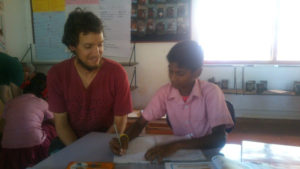
Sravan Reddy has studied engineering physics at IIT Delhi. He works at Dimagi, a social development enterprise, as a software engineer. He has been regularly coming to Auroville for inner development and volunteers in STEM land. He visited STEM land and the i-SMART class room and came to know about the courses we conduct for youth in and around Auroville. He is interested in conducting a course on creating good software using Python and designing websites along with Django at STEM land.
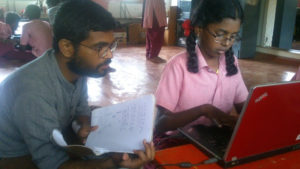
Kitchen waste water treatment plant
Kitchen waste water treatment plant is an EBD (Education By Design) and its main objective is to reuse the kitchen waste water for watering the garden. We decided to create the waste water recycling system, in order to reuse kitchen water to water plants.

Through the EBD, children learnt the following
Measurement of Height and Circumference : To measure the height of the tank we used a bamboo stick. Children marked the height of the tank on the bamboo stick. We used a thread to measure the circumference. Children took the thread around the circular shaped ring and marked on the thread. The challenging part was we were not able to find the measuring tape and used the metre scale instead. We found that the height of the tank was 3m and Circumference to be around 3.14m. Through this we found out that the radius was half a meter. Finally we found out that the tank volume was approximately 2355L.
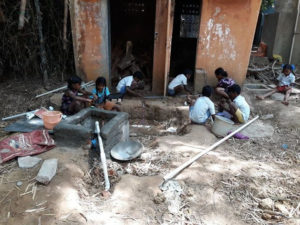
fixed a motor to pump water from the pit. Eventually, the pumped water is used to water the garden. A circuit is connected to the water tank which indicates the rise in the level of the water in the pit.
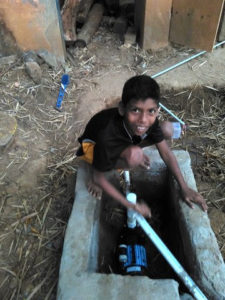
Concreting the Pond EBD
Children made a pond in their school as an EBD. After 6 month it developed a crack because of the roots from the trees around it. After that we sat with children and had a conversation about the pond. One child asked how about concreting the whole pond.
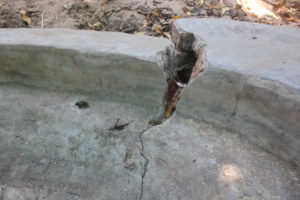
Then we used 6mm and 8mm iron rods and bent them along the contour of the pond. While bending the rods, children learnt about the the rod size, name of the tools we used, measurement, volume, and ratio.
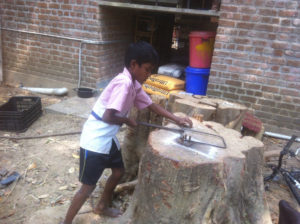
The bending and cutting of rods were done by the children. We bought 40Kg of 6mm 50Kg of 8mm rods for the pond.
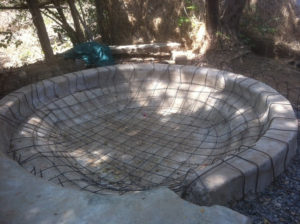
Children made 100 TMT rings to make a beam structure around the pond. After the rod work was done, we bought 1unit of sand, jelly and 10 bags of cement. We hired a mason in the end for mixing the jelly and for smoothing the pond. While doing EBD we used to have question section, during that time we will discuss children’s questions and clarify them. While doing EBD children connected with their theory in their books and understand the concept well.
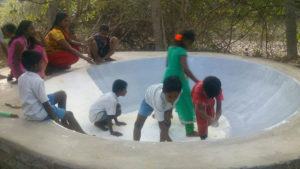
Vegetable Garden EBD
Children in Isai Ambalam school wanted to make a garden in their school. We had visited Botanical garden and Pebble garden. We saw different ways of making a garden. We wanted to set up a drip irrigation system in the garden using sprinklers. We started planting in the beds we had prepared.
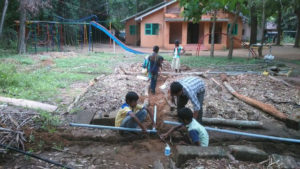
Children from 6th and 7th graders took responsibility to connect sprinklers all over the garden. It was a new experience connecting sprinklers and routing the pipe to our garden. We are starting to see plants coming up in the garden.
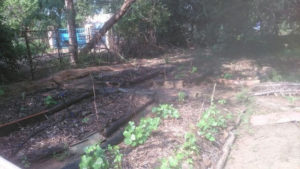
Children take turns to water the plants. Now they give all the vegetables that they harvest from the garden to the school kitchen.
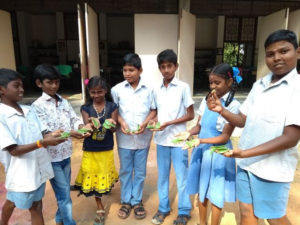
Our Team
This quarter Logeshwari, Ranjith and Saranya, all Engineering graduates, joined us as part of an internship program which takes the current team size to 10. They are learning programming and electronics and are supporting children in Isaiambalam to complete the EBDs. They are also working on hands on projects and have attended the VLSI layout course.
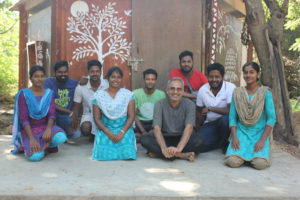
Left to right ) Logeshwari, Bala, Arun,Saranya, Pratap, Sanjeev, Naveen, Sundar, Poovizhi, (missing in pic) Ranjith
Contributions can be directed towards
Auroville Unity Fund
(with a note for STEM land)
and mail to Dr.Sanjeev Ranganathan,
STEM land Udavi School, Auroville,
Edayanchavadi, Tamil Nadu – 605101
All donations are 100% tax deductible in India.
|
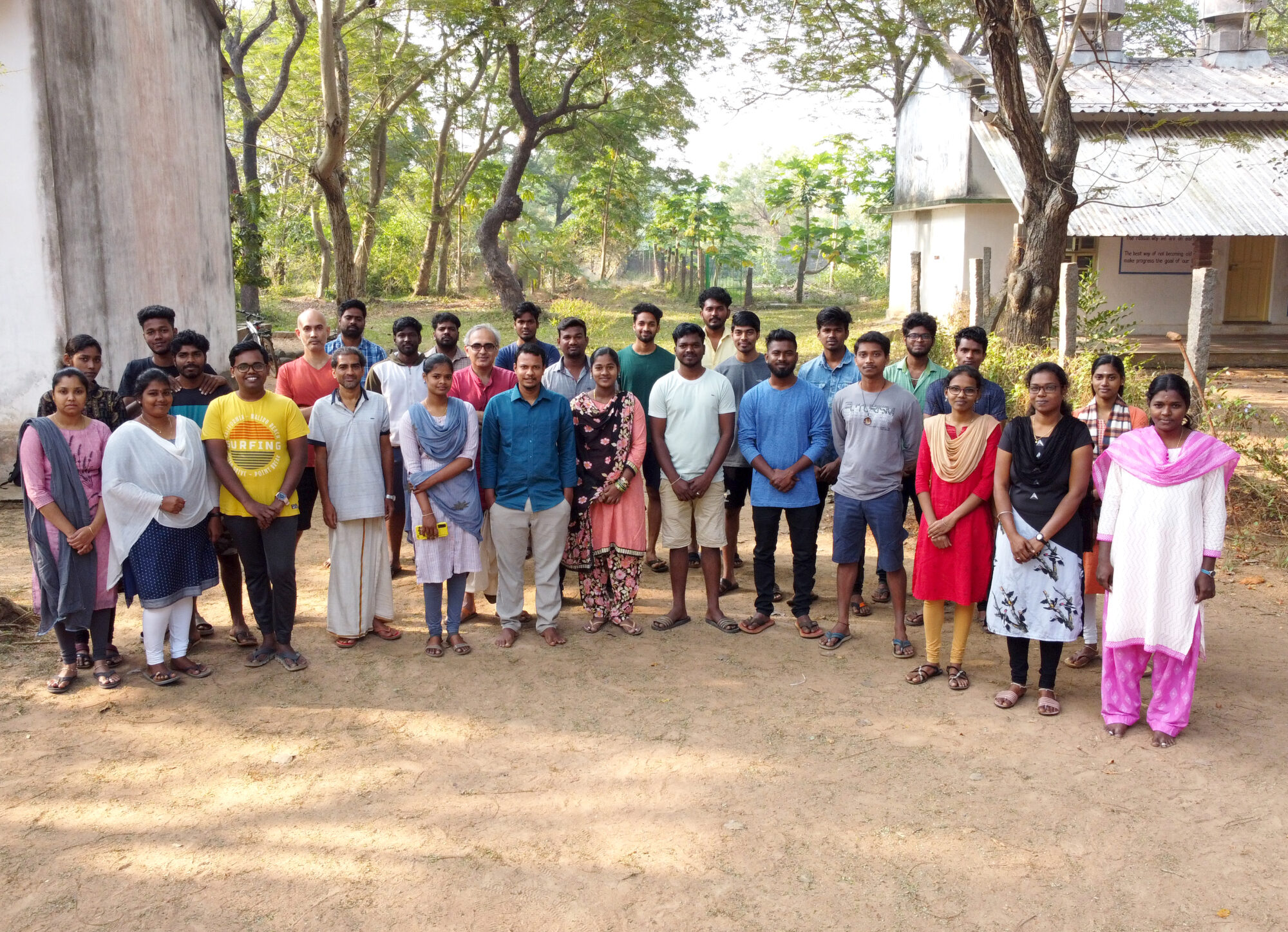

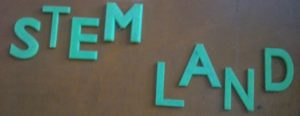




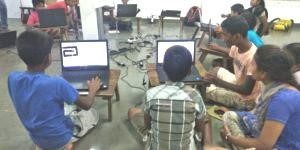

























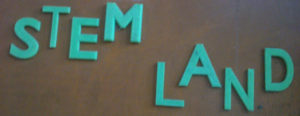
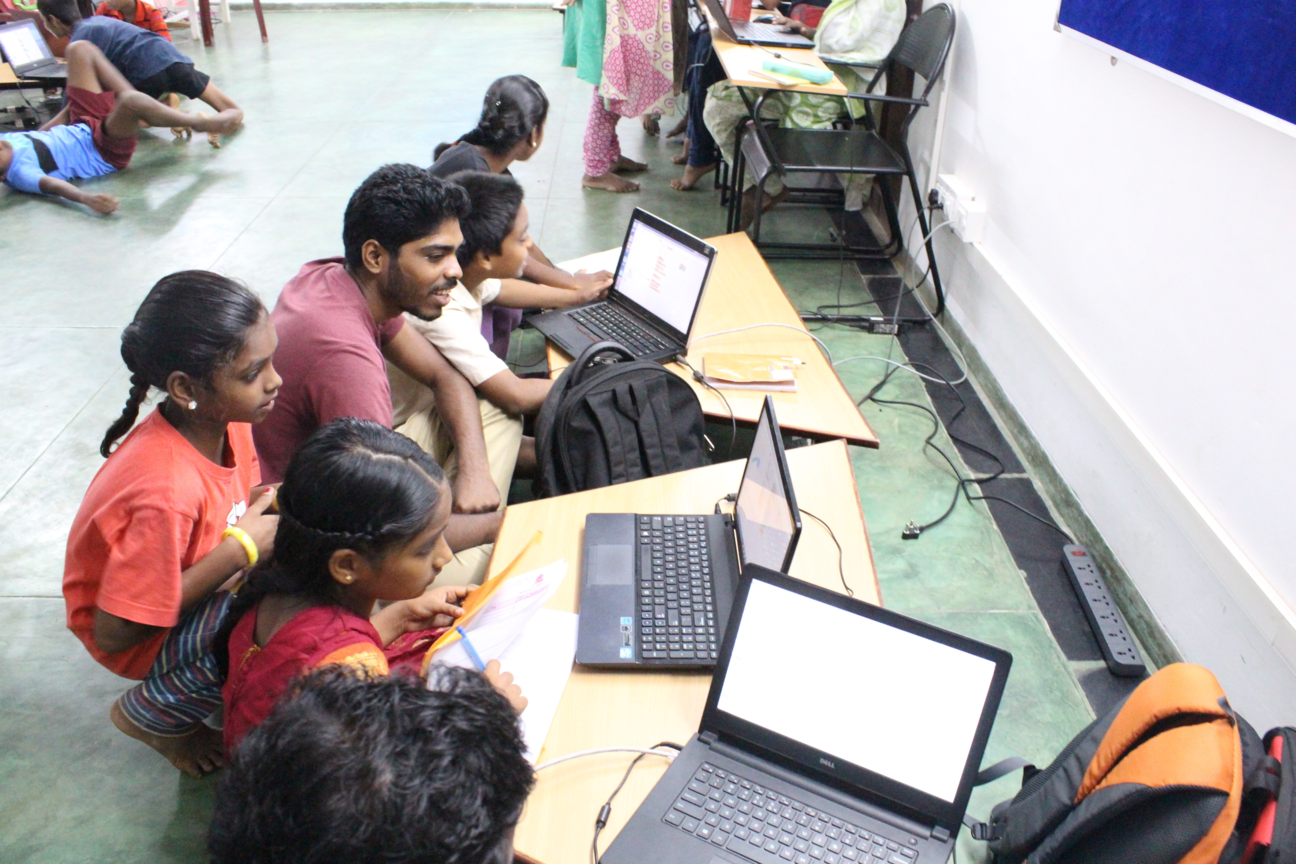

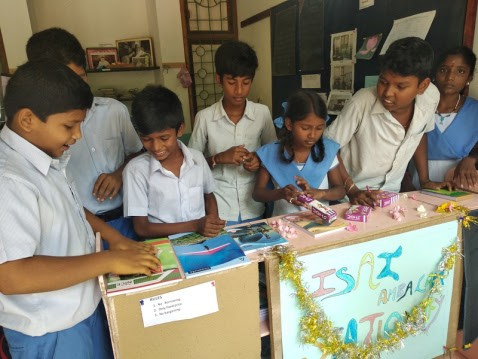
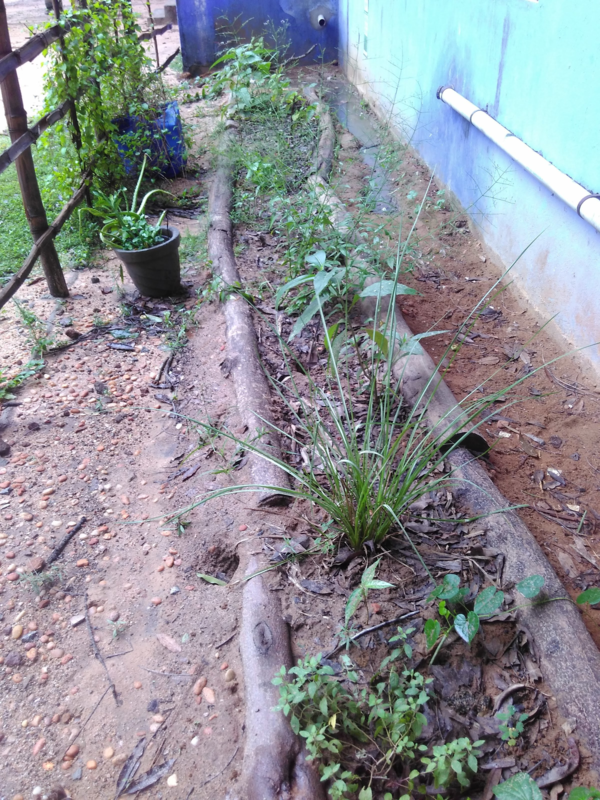
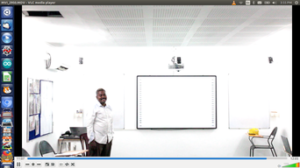
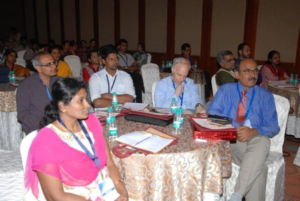 Learning about Indigenous cotton
Learning about Indigenous cotton Scratch Course
Scratch Course